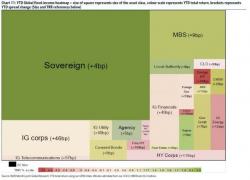Peter Pan Is Dead - Japanese Economy Stalls For 6th Time In 6 Years

We just cannot wait for the next time either Abe or Kuroda utter the following string of words "[stimulus - insert any combination of equity buying, bond buying, money printing, and NIRP] is having the desired effect." For the sixth time in the last 6 years, GDP growth has once again turned negative and while the BoJ balance sheet continues to balloon, so the nation's economy (as measure by GDP) is now shrinking as Peter Pan policy is officially dead.

